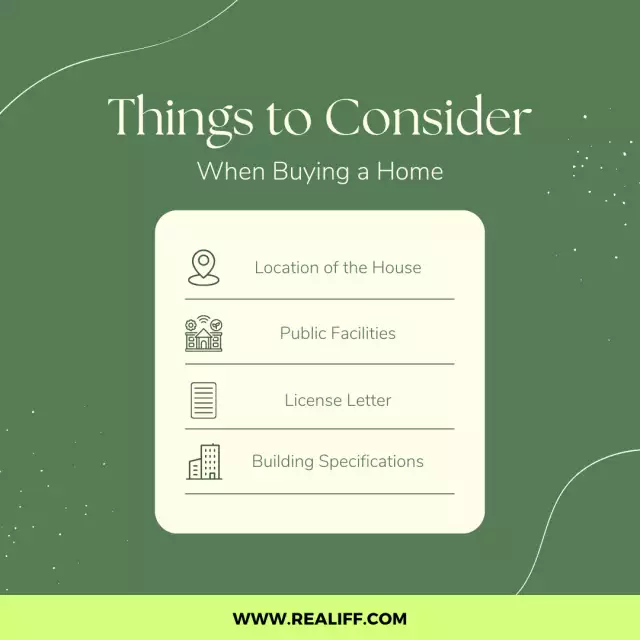Navigating Lender Fees: A Guide to Understanding Closing Costs on Your Mortgage
Navigating Lender Fees: A Guide to Understanding Closing Costs on Your Mortgage
Closing costs are an essential part of the home buying or refinancing process. They are fees charged by lenders, title companies, and government agencies that cover various expenses associated with the mortgage transaction. These costs can vary depending on the location of the property, the type of mortgage, and other factors. In this article, we will provide a comprehensive overview of closing costs, including the types of fees that borrowers can expect to pay, how to negotiate closing costs, and other important considerations.
| Fee | Description |
| Application fee | Fee charged by the lender for processing the mortgage application |
| Origination fee | Fee charged by the lender for originating the mortgage loan |
| Discount points | Fees paid by the borrower to the lender to lower the interest rate on the mortgage loan |
| Underwriting fee | Fee charged by the lender for underwriting the mortgage loan |
| Processing fee | Fee charged by the lender for processing the mortgage loan |
| Appraisal fee | Fee charged by the lender for ordering an appraisal of the property |
| Credit report fee | Fee charged by the lender for obtaining a credit report on the borrower |
| Tax service fee | Fee charged by the lender for setting up a tax service account |
| Flood certification fee | Fee charged by the lender for obtaining a flood certification on the property |
| Wire transfer fee | Fee charged by the lender for wiring the funds to the title company or other parties involved in the mortgage transaction |
Types of Closing Costs
Closing costs can be divided into three main categories: lender fees, title company fees, and government fees. We will discuss each category in detail below.
Lender Fees
Lender fees are expenses charged by the mortgage lender for processing and approving the mortgage loan. These fees are typically paid by the borrower and are included in the closing costs. The following are some of the most common lender fees:
- Application fee: This fee is charged by the lender to cover the cost of processing the mortgage application. It may also cover the cost of obtaining a credit report and verifying the borrower's income and employment.
- Origination fee: This fee is charged by the lender for originating the mortgage loan. It covers the lender's administrative costs and may include a commission for the loan officer.
- Discount points: Discount points are fees paid by the borrower to the lender to lower the interest rate on the mortgage loan. Each discount point typically costs 1% of the loan amount and can lower the interest rate by 0.25% to 0.5%.
- Underwriting fee: This fee is charged by the lender for underwriting the mortgage loan. The underwriter reviews the borrower's creditworthiness, income, employment history, and other factors to determine whether to approve the loan.
- Processing fee: This fee is charged by the lender for processing the mortgage loan. It covers the cost of verifying the borrower's income and employment, reviewing the borrower's credit report, and preparing the loan documents.
- Appraisal fee: This fee is charged by the lender for ordering an appraisal of the property. The appraisal is used to determine the value of the property and to ensure that the loan amount does not exceed the value of the property.
- Credit report fee: This fee is charged by the lender for obtaining a credit report on the borrower. The credit report is used to assess the borrower's creditworthiness and to determine the interest rate and other terms of the mortgage loan.
- Tax service fee: This fee is charged by the lender for setting up a tax service account. The tax service account is used to ensure that property taxes are paid on time and that the property does not have any outstanding tax liens.
- Flood certification fee: This fee is charged by the lender for obtaining a flood certification on the property. The flood certification is used to determine whether the property is located in a flood zone and whether flood insurance is required.
- Wire transfer fee: This fee is charged by the lender for wiring the funds to the title company or other parties involved in the mortgage transaction.
It's important for borrowers to review the lender fees carefully and ask any questions about the fees before agreeing to the mortgage loan. Some lenders may be willing to reduce or waive some of their fees, especially if the borrower has good credit and a strong financial profile. By comparing offers from multiple lenders and negotiating the fees, borrowers can save thousands of dollars on their mortgages.
Loan Origination Fee
The loan origination fee is a charge for the lender's administrative costs related to processing and underwriting the loan application. This fee is usually a percentage of the loan amount, ranging from 0.5% to 1%. For example, if the loan amount is $200,000, the loan origination fee could be between $1,000 and $2,000. Some lenders may offer a no-fee mortgage, which means that they do not charge a loan origination fee, but the interest rate may be higher.
Appraisal Fee
The appraisal fee covers the cost of obtaining an appraisal of the property. An appraisal is an independent assessment of the property's value by a licensed appraiser. The lender uses the appraisal to determine the loan-to-value ratio (LTV) of the mortgage. The appraisal fee can vary depending on the location of the property and the complexity of the appraisal. Typically, the fee is between $300 and $500.
Credit Report Fee
The credit report fee is a charge for obtaining a copy of the borrower's credit report. The lender uses the credit report to assess the borrower's creditworthiness and ability to repay the mortgage. The fee can vary depending on the lender, but it is typically between $25 and $50.
Title Company Fees
Title company fees are charges for services provided by the title company. These fees include fees for conducting a title search, issuing title insurance, and other services related to the transfer of property ownership.
Title Search Fee
The title search fee covers the cost of conducting a search of the property's title history to ensure that there are no liens or other encumbrances on the property that would prevent the transfer of ownership. The fee can vary depending on the location of the property and the complexity of the search. Typically, the fee is between $200 and $500.
Title Insurance Fee
Title insurance is a policy that protects the lender and the borrower against any defects in the title or ownership disputes. The fee for title insurance can vary depending on the location of the property and the amount of coverage required. Typically, the fee is between 0.5% and 1% of the loan amount.
Other Title Company Fees
Other title company fees may include fees for document preparation, notary services, and courier services. These fees can vary depending on the services provided by the title company.
Government Fees
Government fees are charges for services provided by government agencies. These fees include charges for recording the mortgage and transferring the property ownership.
Recording Fee
The recording fee is a charge by the county clerk's office for recording the mortgage in the public records. The fee can vary depending on the location of the property and the amount of the mortgage. Typically, the fee is between $50 and $500.
Transfer Tax
The transfer tax is a tax imposed by the state or local government when property ownership is transferred. The transfer tax can vary depending on the location of the property and the sale price of the property. Some states, such as California, do not have a transfer tax, while others, such as New York, have a high transfer tax rate.
Other Government Fees
Other government fees may include charges for obtaining a property survey, flood certification, and other services required by the lender or government agencies. These fees can vary depending on the location of the property and the services required.
Closing Cost Estimates
Before closing on a mortgage, borrowers receive a loan estimate from the lender, which outlines the estimated closing costs. The loan estimate includes a breakdown of the lender fees, title company fees, and government fees. The borrower can use this estimate to compare offers from multiple lenders and title companies.
It's important to note that the actual closing costs may differ from the loan estimate, and borrowers should be prepared for unexpected fees. The lender is required to provide the borrower with a closing disclosure, which outlines the final closing costs at least three days before the closing date. The borrower should review the closing disclosure carefully and ask any questions about the fees.
Negotiating Closing Costs
Closing costs are negotiable, and borrowers should be prepared to ask for a reduction or waiver of fees. Some lenders may be willing to reduce or waive some of their fees, while others may not. It's important to compare offers from multiple lenders and title companies to find the best deal.
Borrowers should also be aware of the option of a no-closing-cost mortgage, which means that the lender pays some or all of the closing costs on behalf of the borrower. However, these types of mortgages may have a higher interest rate or other fees, so borrowers should carefully consider their options.
Other Considerations
In addition to the closing costs, borrowers should consider other expenses associated with the mortgage, such as property taxes, homeowners insurance, and mortgage insurance.
Property Taxes
Property taxes are taxes imposed by the local government on the value of the property. The amount of property taxes can vary depending on the location of the property and the assessed value of the property. Borrowers should be prepared to pay property taxes on a regular basis, which are typically paid as part of the monthly mortgage payment.
Homeowners Insurance
Homeowners insurance is a policy that protects the borrower against damage to the property and liability claims. The cost of homeowners insurance can vary depending on the location of the property and the amount of coverage required. Borrowers are required to have homeowners insurance as a condition of the mortgage.
Mortgage Insurance
Mortgage insurance is a policy that protects the lender against the risk of default by the borrower. Mortgage insurance is typically required if the borrower makes a down payment of less than 20% of the purchase price of the property. The cost of mortgage insurance can vary depending on the type of mortgage and the amount of the down payment.
Conclusion
Closing costs are an essential part of the home-buying or refinancing process. They cover various expenses associated with the mortgage transaction, including lender fees, title company fees, and government fees. Borrowers should compare offers from multiple lenders and title companies to find the best deal and be prepared for unexpected fees. Closing costs are negotiable, and borrowers should be prepared to ask for a reduction or waiver of fees. In addition to the closing costs, borrowers should consider other expenses associated with the mortgage, such as property taxes, homeowners insurance, and mortgage insurance. By understanding the various costs associated with a mortgage, borrowers can make informed decisions and potentially save thousands of dollars.






